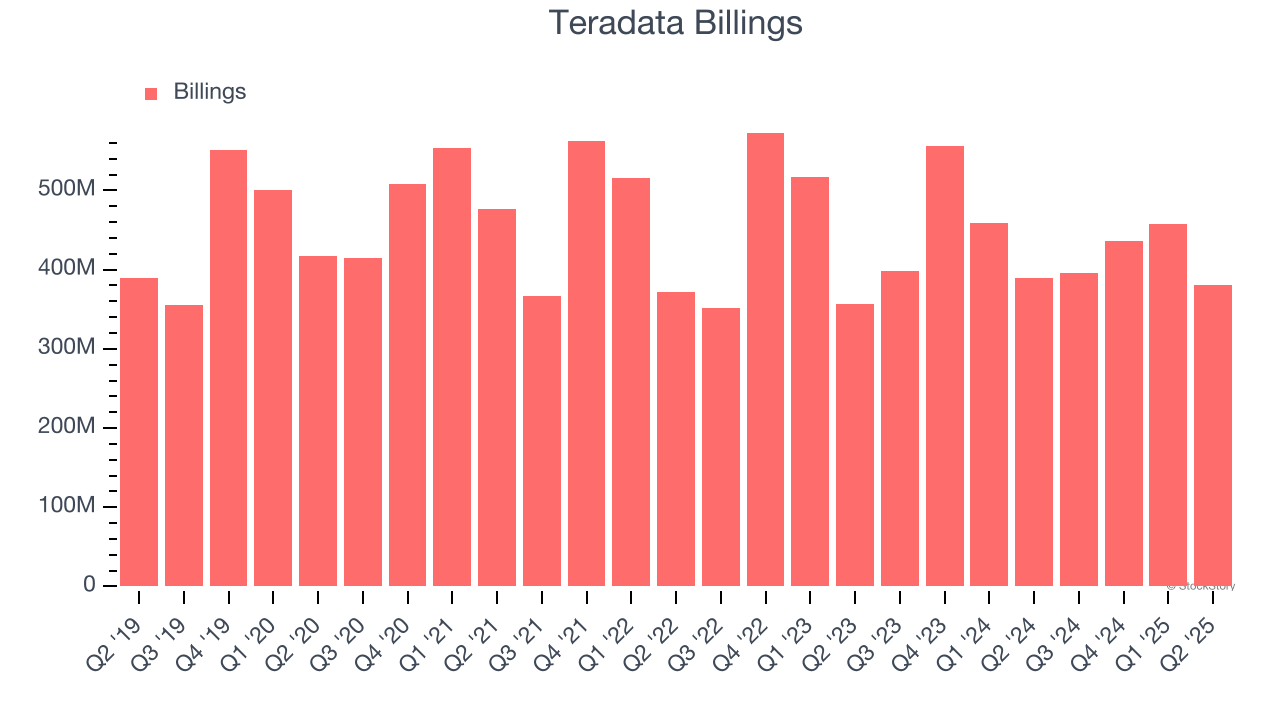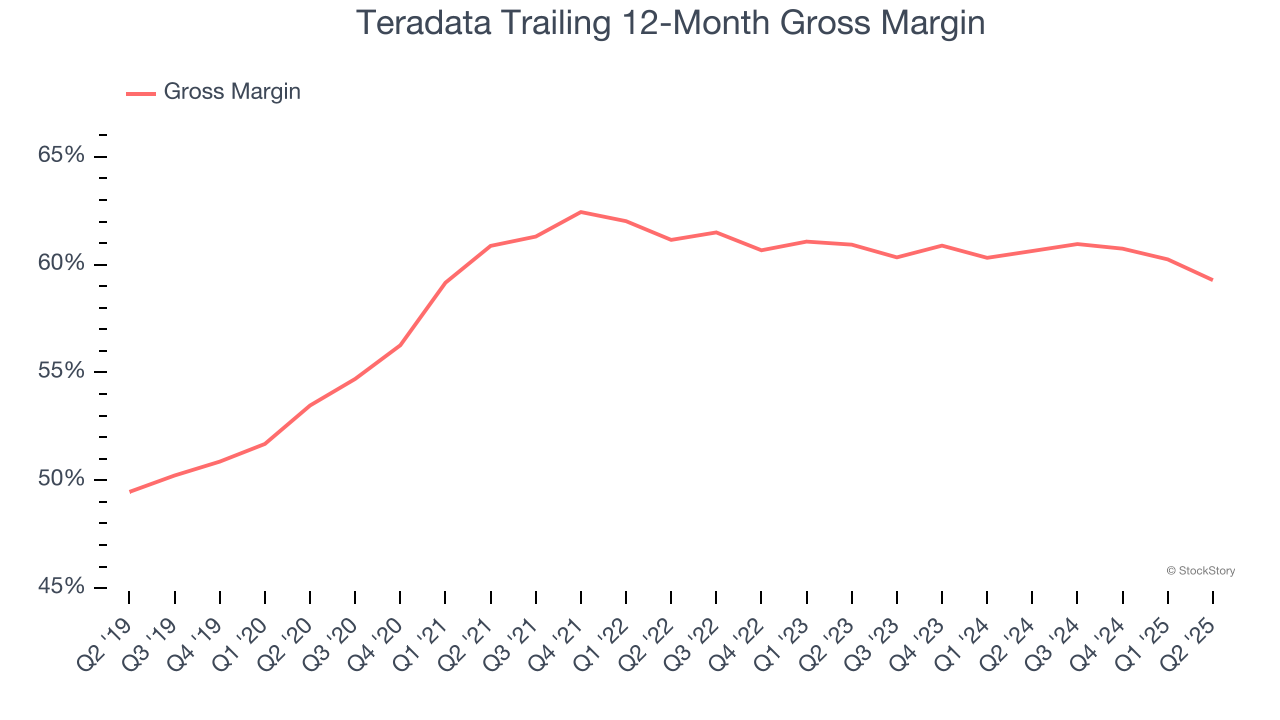
Teradata has been treading water for the past six months, recording a small loss of 2.5% while holding steady at $21.03. The stock also fell short of the S&P 500’s 22.9% gain during that period.
Is there a buying opportunity in Teradata, or does it present a risk to your portfolio? See what our analysts have to say in our full research report, it’s free for active Edge members.
Why Do We Think Teradata Will Underperform?
We're cautious about Teradata. Here are three reasons there are better opportunities than TDC and a stock we'd rather own.
1. Declining Billings Reflect Product and Sales Weakness
Billings is a non-GAAP metric that is often called “cash revenue” because it shows how much money the company has collected from customers in a certain period. This is different from revenue, which must be recognized in pieces over the length of a contract.
Teradata’s billings came in at $380 million in Q2, and it averaged 6.2% year-on-year declines over the last four quarters. This performance was underwhelming and shows the company faced challenges in acquiring and retaining customers. It also suggests there may be increasing competition or market saturation. 
2. Revenue Projections Show Stormy Skies Ahead
Forecasted revenues by Wall Street analysts signal a company’s potential. Predictions may not always be accurate, but accelerating growth typically boosts valuation multiples and stock prices while slowing growth does the opposite.
Over the next 12 months, sell-side analysts expect Teradata’s revenue to drop by 2.5%, close to its 1.9% annualized declines for the past five years. This projection is underwhelming and indicates its newer products and services will not lead to better top-line performance yet.
3. Low Gross Margin Reveals Weak Structural Profitability
For software companies like Teradata, gross profit tells us how much money remains after paying for the base cost of products and services (typically servers, licenses, and certain personnel). These costs are usually low as a percentage of revenue, explaining why software is more lucrative than other sectors.
Teradata’s gross margin is substantially worse than most software businesses, signaling it has relatively high infrastructure costs compared to asset-lite businesses like ServiceNow. As you can see below, it averaged a 59.3% gross margin over the last year. That means Teradata paid its providers a lot of money ($40.72 for every $100 in revenue) to run its business.
The market not only cares about gross margin levels but also how they change over time because expansion creates firepower for profitability and free cash generation. Teradata has seen gross margins decline by 1.6 percentage points over the last 2 year, which is poor compared to software peers.

Final Judgment
Teradata doesn’t pass our quality test. With its shares trailing the market in recent months, the stock trades at 1.3× forward price-to-sales (or $21.03 per share). This valuation tells us it’s a bit of a market darling with a lot of good news priced in - we think there are better opportunities elsewhere. We’d suggest looking at our favorite semiconductor picks and shovels play.
Stocks We Like More Than Teradata
When Trump unveiled his aggressive tariff plan in April 2025, markets tanked as investors feared a full-blown trade war. But those who panicked and sold missed the subsequent rebound that’s already erased most losses.
Don’t let fear keep you from great opportunities and take a look at Top 9 Market-Beating Stocks. This is a curated list of our High Quality stocks that have generated a market-beating return of 183% over the last five years (as of March 31st 2025).
Stocks that made our list in 2020 include now familiar names such as Nvidia (+1,545% between March 2020 and March 2025) as well as under-the-radar businesses like the once-micro-cap company Tecnoglass (+1,754% five-year return). Find your next big winner with StockStory today.
StockStory is growing and hiring equity analyst and marketing roles. Are you a 0 to 1 builder passionate about the markets and AI? See the open roles here.
